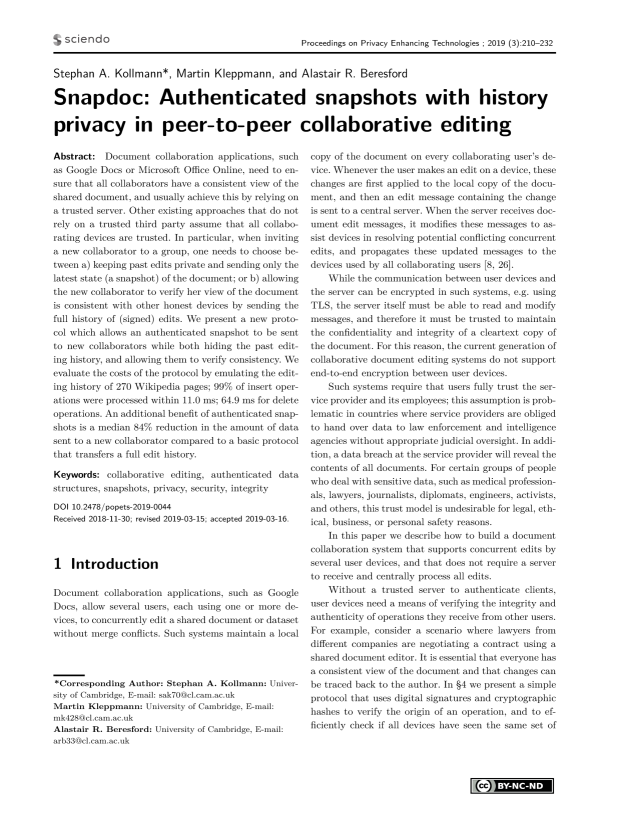Snapdoc: Authenticated snapshots with history privacy in peer-to-peer collaborative editing
Authors: Stephan A. Kollmann (University of Cambridge), Martin Kleppmann (University of Cambridge), Alastair R. Beresford (University of Cambridge)
Volume: 2019
Issue: 3
Pages: 210–232
DOI: https://doi.org/10.2478/popets-2019-0044
Abstract: Document collaboration applications, such as Google Docs or Microsoft Office Online, need to ensure that all collaborators have a consistent view of the shared document, and usually achieve this by relying on a trusted server. Other existing approaches that do not rely on a trusted third party assume that all collaborating devices are trusted. In particular, when inviting a new collaborator to a group, one needs to choose between a) keeping past edits private and sending only the latest state (a snapshot) of the document; or b) allowing the new collaborator to verify her view of the document is consistent with other honest devices by sending the full history of (signed) edits. We present a new protocol which allows an authenticated snapshot to be sent to new collaborators while both hiding the past editing history, and allowing them to verify consistency. We evaluate the costs of the protocol by emulating the editing history of 270 Wikipedia pages; 99% of insert operations were processed within 11.0 ms; 64.9 ms for delete operations. An additional benefit of authenticated snapshots is a median 84% reduction in the amount of data sent to a new collaborator compared to a basic protocol that transfers a full edit history.
Keywords: collaborative editing, authenticated data structures, snapshots, privacy, security, integrity
Copyright in PoPETs articles are held by their authors. This article is published under a Creative Commons Attribution-NonCommercial-NoDerivs 3.0 license.

